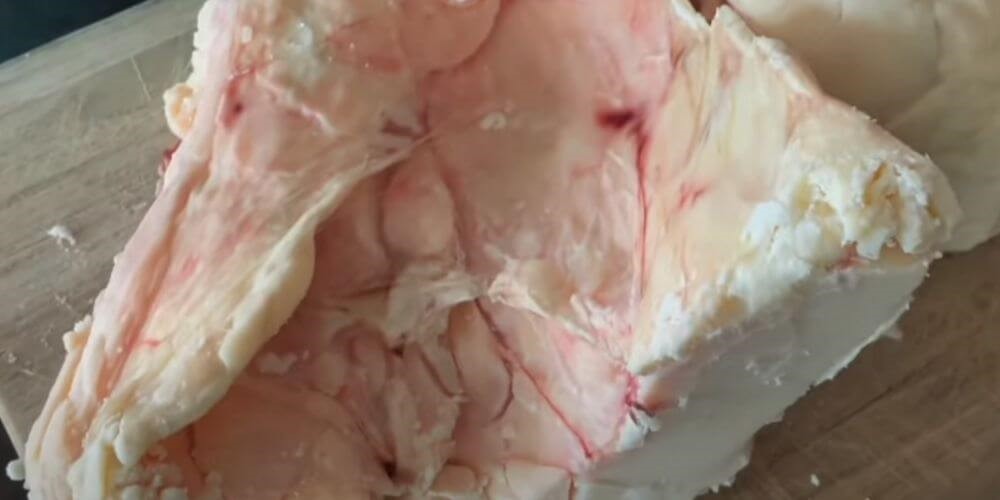- Tallow has a high smoke point as compared to processed cooking fats and oils.
- This characteristic makes it suitable for high-heat cooking methods like deep frying.
Tallow is the extracted animal fat. It can be from beef, sheep or goat. It is either solid or semi-solid at room temperature.
Tallow has a high smoke point as compared to processed cooking fats and oils. This characteristic makes it suitable for high-heat cooking methods like deep frying.
The fat can withstand extreme temperatures without breaking down to produce toxic compounds, hence making it ideal for frying, roasting and searing methods of cooking.
Tallow also imparts a sweet, savoury flavour to foods like roasted meat, fried foods and pie crusts.
Its nutrient content contains fat-soluble vitamins A, D, E, and K., conjugated linoleic acid, both of which offer nutritional values to consumers.
Read More
In addition, tallow has a fatty acid composition and emollient properties, which make it ideal for skincare.
It can be used as a moisturizer due to its unique skin care oils, and it has been proven to be beneficial to skin elasticity and general appearance.
According to research carried out by the US Department for Agriculture (USDA), vegetable oil and tallow have different calorie counts of 886 per 100g and 902 per 100g, respectively.
The main difference between the two cooking fats is the ‘fat composition’.
Although the two contain a mix of saturated, monounsaturated and polyunsaturated fats, vegetable oil has been proven to have a higher level of unsaturated fats of more than 80% combined compared to tallow, which has around 40%.
Vegetable oil contains approximately 41.88g of monounsaturated and 41.19g of polyunsaturated fats per 100g serving. When the two are compared, beef tallow is almost 50% saturated fat at 49.8g per 100g.
Tallow (beef, goat, and sheep fat) and lard, which is fat from pigs, were the traditional cooking fats across the world until the early 20th century, when a shift occurred.
In the mid-20th century, scientists started viewing the consumption of animal fat as the cause behind the rising health issues, such as cardiovascular diseases.
Vegetable and seed oils that were widely used for industrial purposes, like making soap, candles, and machinery fuel, were introduced and promoted widely as heart-friendly and an alternative to animal fats.
Although current research shows that plant-based oils like olive, canola and sesame, among others, may be better for some health outcomes, tallow is regaining popularity, especially in the wellness community.
The unique characteristic of tallow being made up of primarily saturated fats, unlike other liquid fats like olive, canola and groundnut oils that contain unsaturated fats, is what makes it preferable to most people today.
The skin care use has given tallow an added advantage. Tallow resembles the natural oils produced by the human skin. Due to this fact, it can be used to moisturise the skin since it is also skin-sensitive.
Tallow also has anti-inflammatory benefits that lock moisture and reduce oxidation. This, combined with the fat-soluble vitamins in the tallow, easily improves the skin elasticity and the general health as well as the appearance when applied topically.
Therefore, ladies, next time you think of purchasing collagen for your skin care, think of tallow. It is a cheap, healthier alternative.
Henceforth, including a high-quality beef tallow in your diet or skin care routine will benefit you both internally and externally.












